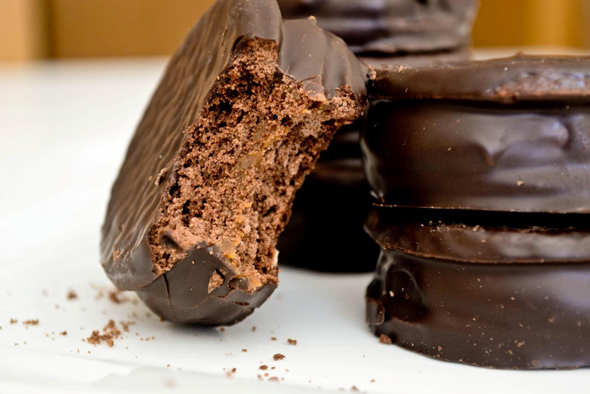The Praline Entrepreneurs: Israel's First Coworking Space for Foodmakers
Set to open next month in central Israel, MakeEat is a coworking space and incubator for small-scale food businesses
At this coworking space, a granola maker will rub shoulders with a chocolatier crafting handmade pralines, a baker specializing in bagels, and a chef turning coconuts into a collection of delectable spreads. In a country rife with tech incubators, accelerators, and coworking spaces, MakeEat, set to open next month in central Israel, is the first incubator for foodmakers.
Spanning 700 square meters, MakeEat will host dozens of small-scale foodmakers. The two entrepreneurs behind it are Michal Klimberg, CEO of real estate company Lagova Properties Ltd. and director of local candy company Carmit Candy Industries Ltd., and Shir Halpern, a food entrepreneur and the owner of Tel Aviv's farmers market.
 Michal Klimberg (left), and Shir Halpern. Photo: Orel Cohen
Michal Klimberg (left), and Shir Halpern. Photo: Orel Cohen
MakeEat is located at a former Carmit Candy factory. "When the business grew and had to be relocated, we thought about what we should do with the facility," Klimberg told Calcalist in a recent interview. "In the end, we came back to the Zionist idea of development and industry. We realized we could not simply discard the food production facilities we had here, and decided to bring in small and independent foodmakers who would enjoy the services available."
According to Halpern, when the two entrepreneurs first met to discuss the idea, she knew there was a real need for facilities to serve non-industrialized food producers. "I have seen a lot of small manufacturers who were unable to grow, that did not have the right framework or infrastructure to develop," she said. "We realized that merging an industrial production line with small food manufacturers could allow us to create a first-of-its-kind, innovative platform that will serve as an engine of growth."
The two have met with dozens of foodmakers throughout the country, from cheesemakers to charcuterie makers, confectioners, and beer brewers. They discovered people with an excellent product but without a solid customer base to provide the money needed to buy equipment, Klimberg said. "Many people do not even know where to begin."
 Alfajores. Photo: Tamara Pomerantz
Alfajores. Photo: Tamara Pomerantz
"A small manufacturer who wants to open a 100-square-meters facility starts with a minimum investment of NIS 3 million (approximately $870,000), and that is even before they buy flour," Halpern said. "There is a lot of uncertainty in this field, and great financial risks, and banks usually refrain from funding such businesses."
- 8 Startups Dishing Out Vegan Alternatives
- Feeling Trashy: These 10 Startups Aim to Reduce Food Waste
- Six Companies Disrupting the Coffee Industry, or at Least Giving it Their Best (Espresso) Shot
Of the food entrepreneurs who answered MakeEat's open call, many are establishing businesses in the fields of baking and pastry. This is why the first cohort will be dedicated to such businesses, including a babka baker, a granola business, a venture built around chocolate chip cookies, and a pickler.
MakeEat can host up to 40 food makers per session, and entrepreneurs will pay on average NIS 800 ($230) per eight-hour shift, with the house supplying much of the basic cooking ingredients. This is necessary to meet kosher requirements, but the two see it as added value. "A maker can arrive at an eight-hour shift without bringing anything, and when they are done, just wash their hands and go home," Klimberg said.



